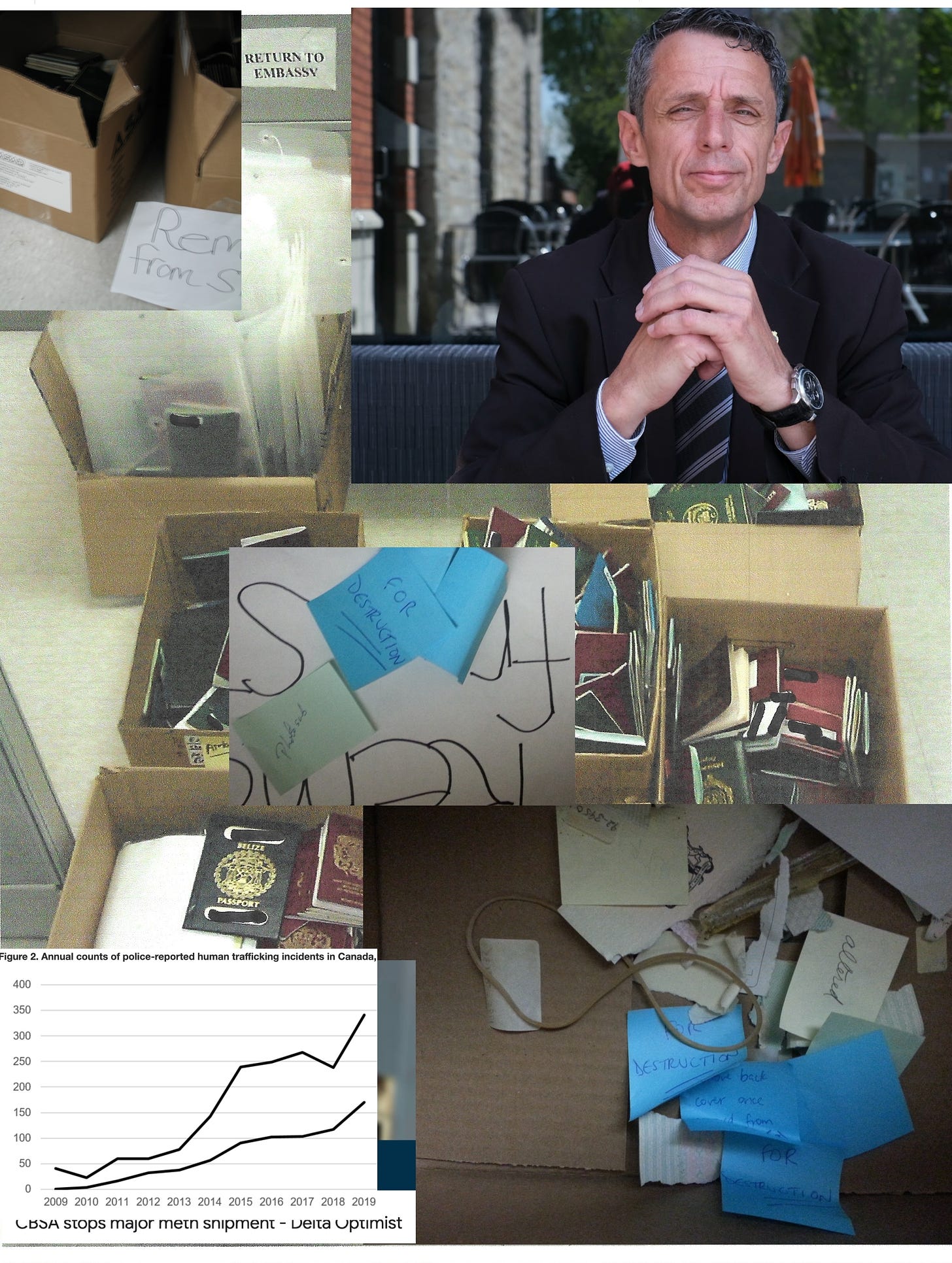CBSA whistleblower believes transnational gangs have compromised agency databases, helping terrorists, spies and mafias enter Canada
Luc Sabourin wants re-examination of cases including alleged "mass shredding" of foreign passports that included suspects in Canada sought by CBSA

Luc Sabourin, a former CBSA officer, chokes back tears as he recalls the day a man from one of Canada’s most violent crime families — a refugee from Palestine linked to Mexico’s Sinaloa cartel — stood outside Sabourin’s home in Gatineau, Que., and uttered brutal and visceral threats against Sabourin’s children.
Sabourin — a whistleblower who has complained of numerous serious incidents inside Canada Border Services Agency that he believes are due to organized crime infiltration — thinks a particular colleague may have leaked his home address to the drug trafficker, whom Sabourin was scheduled to testify against.
The alleged threats occurred well over ten years ago, and the gangster — whom The Bureau will not identify — has since died in Mexico. However, his close associates continue to endanger North America and are believed to have compromised Canadian and international officials.
Sabourin believes threats to his life and many alleged incidents of harassment against him and other CBSA staff fit into a pattern of corruption and a culture of secrecy across Canada’s government, which effectively silences whistleblowers.
But this isn’t just about government employees who claim to be isolated or railroaded out of Canada’s government, Sabourin says.
It’s about Canada’s security being compromised with stunning breaches that go unaddressed because the system of accountability is broken.
Among many examples that could suggest organized crime has penetrated CBSA systems, Sabourin discloses an especially shocking case.
A CBSA unit learned that a band of armed men clad in combat fatigues appeared to be smuggling illegal migrants across Quebec’s border, which was then covered up internally, Sabourin says, possibly to the benefit of foreign mafias, human traffickers, drug smugglers, or terrorists.
“I asked within the agency via email if there was any reason why the Quebec Provincial Police and the RCMP were not notified about this,” Sabourin told The Bureau. “An hour later, the email disappeared from the generic mailbox and never reached top management.”
These compromises are the reason Sabourin has testified about his experiences in Parliamentary committees and pushed for new whistleblower protection legislation.
In a series of interviews, Sabourin says he has also paid close attention toThe Bureau’s reporting on intelligence leaks that detailed China’s election interference, alleged collusion with Canadian MPs and Senators, and the penetration of Canada’s immigration systems in Hong Kong in the 1990s via organized crime.
All of this suggests Canada needs an independent anti-corruption agency to tackle the rot of collusion and 'insider threats' linked to criminal and foreign interference networks, Sabourin says, which appear to be spreading through multiple levels of government and various law enforcement agencies.
Sabourin is also calling for a re-examination of what he calls a particularly egregious case in 2015, in which a senior CBSA manager allegedly directed subordinates to illegally destroy hundreds of foreign passports.




